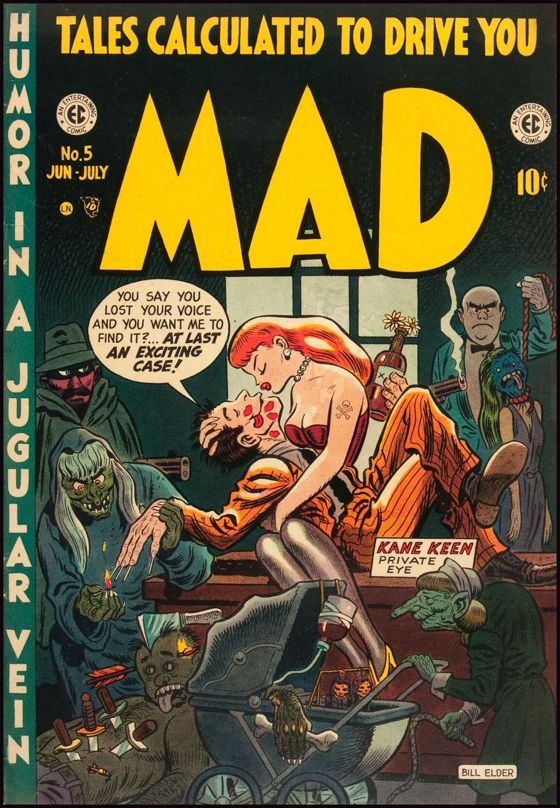
Monthly Archives: December 2011
THE SEA, THE SEA
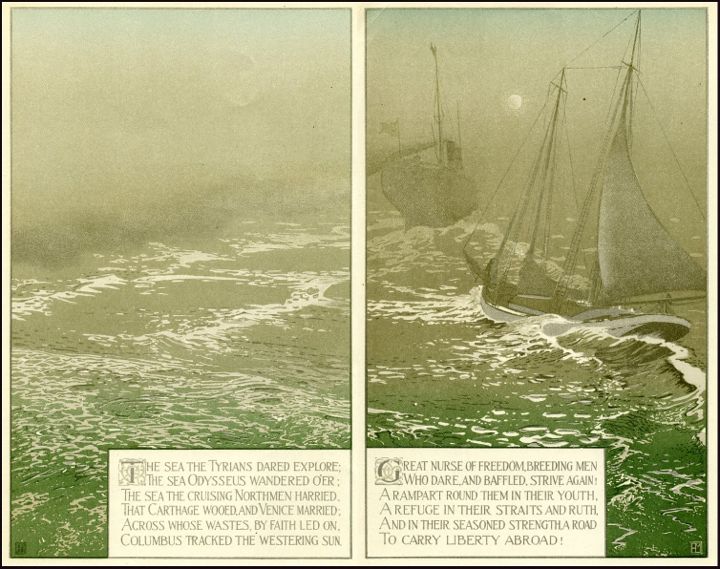
By Henry McCarter in the Century magazine, 1898.
THE WHITE ALBUM
Let me put my cards on the table right up front — I don't think The Beatles (commonly known as The White Album) is very good. It's the weakest album The Beatles ever released — and even though that might mean it's better than the best album many goods groups have put out, that isn't much of a consolation. The Beatles have to be judged by their own standards, and by those standards, The Beatles is second-rate.
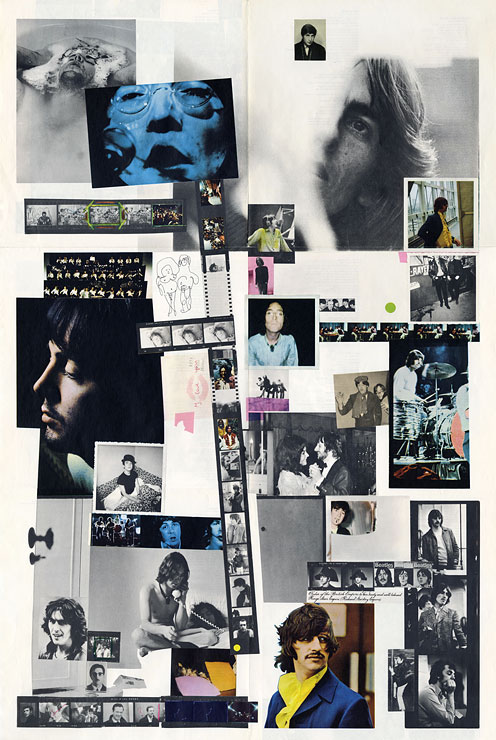
It's a fun album, to be sure — the songs are (for the most part) arranged and played and recorded with The Beatles' customary professionalism and musical inventiveness. The problem is the songwriting. The two-disc set is padded out with too many ditties that seem half-finished, tossed-off. They might be parts of great songs, or the germs of great songs, but as they stand they aren't even particularly good songs. Compare what the lads did with a similar batch of half-baked numbers on the second side of Abbey Road — turning them into a delightful musical montage that had a surreal unity of its own, like a deranged operetta.
At the time of The White Album Lennon and McCartney were basically writing (and sometimes recording) their songs separately. When each was firing on all cylinders, each could create magic — a Strawberry Fields or a Hey, Jude. At other times, though, the absence of the old synergy, when they were collaborating more closely, is keenly felt. Lennon's tendency towards more abstract imagery often resulted in self-indulgent incoherence — McCartney's tendency towards simple, sweet melodies often resulted in self-indulgent blandness. Both frequently found their way into the realm of banality.
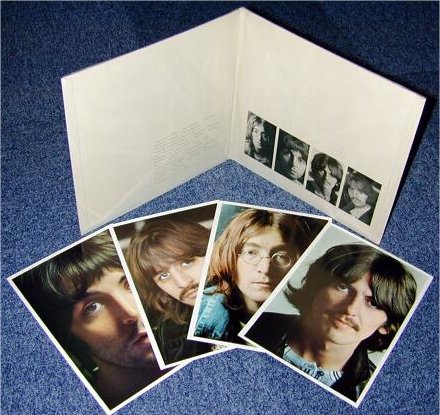
I won't go through the misfires track by track, I'll just offer my idea of the best one-disc album that could be extracted from The Beatles. (George Martin himself begged them to extract a single-disc album from the material they'd recorded, so my idea isn't totally perverse.) I've had to add two songs recorded during or around the time of the sessions for The Beatles, out of concerns for length and quality:
“Back in the U.S.S.R.”
“While My Guitar Gently Weeps”
“Piggies”
“Why Don't We Do It in the Road?”
“I Will”
“Julia”
“Hey, Jude”
“Birthday”
“Long, Long, Long”
“Helter Skelter”
“Revolution 1”
“Savoy Truffle”
“Lady Madonna”
“Good Night”
You'll note that I've kept all of Harrison's songs — which were of a uniformly high quality. Not up to the standards of Lennon and McCartney at their best, perhaps, but well and earnestly crafted.
I've included a couple of Paul's silly pastiches, because that's where his head was at at the time, and they're good enough, for what they are. I've left off one of his better songs, “Blackbird”, because I don't think the arrangement of the released version really serves it adequately.
I've shortchanged Lennon, certainly, but the songs of his I've omitted are substandard variations on ideas he executed better elsewhere.
Ringo's “Don't Pass Me By” is a song best forgotten, but he's represented by his sweet vocal on “Good Night”, with its endearing whispered coda, which is one of the great Beatles moments.
Program your CD or MP3 player to reproduce the track-list above and see what you think.
O CHRISTMAS TREE
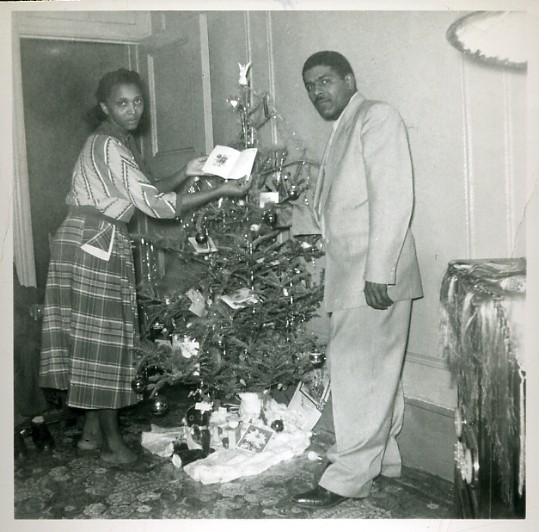
A BOB JONES MAGAZINE ILLUSTRATION FOR TODAY
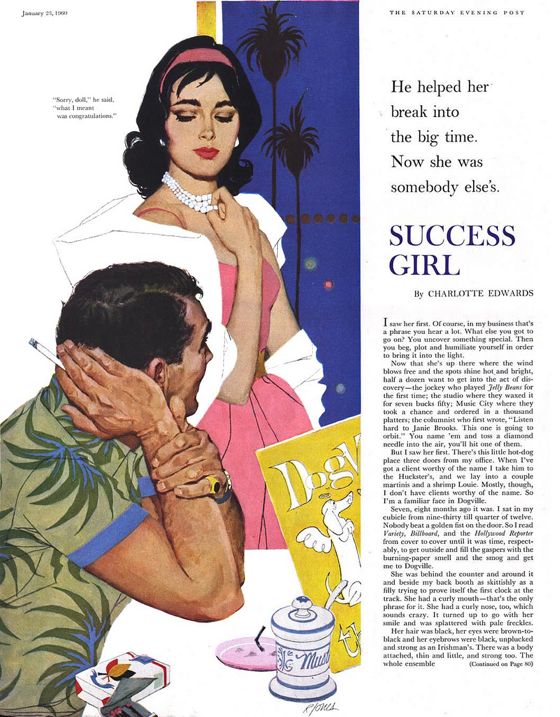
HO! HO! HO!
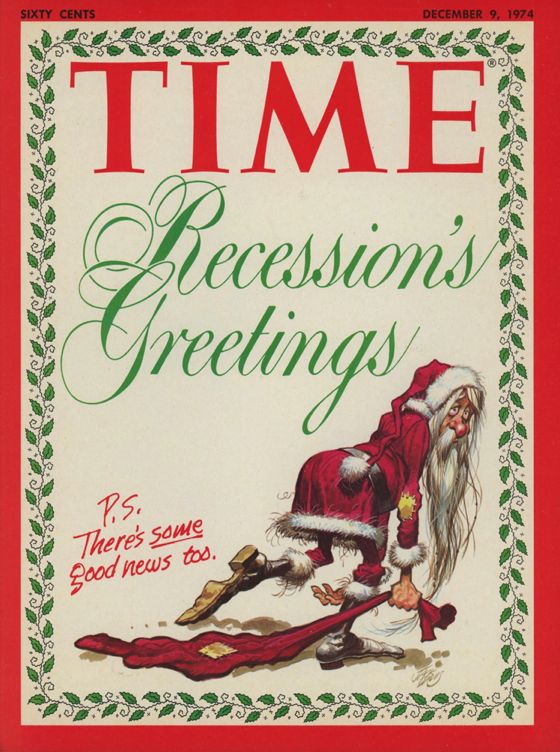
ROLL UP!
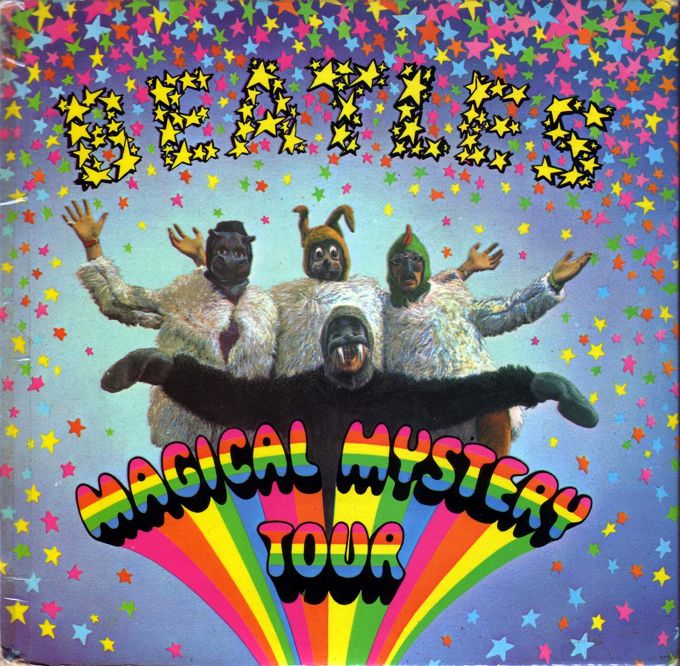
AN ALBERT DORNE FOR TODAY
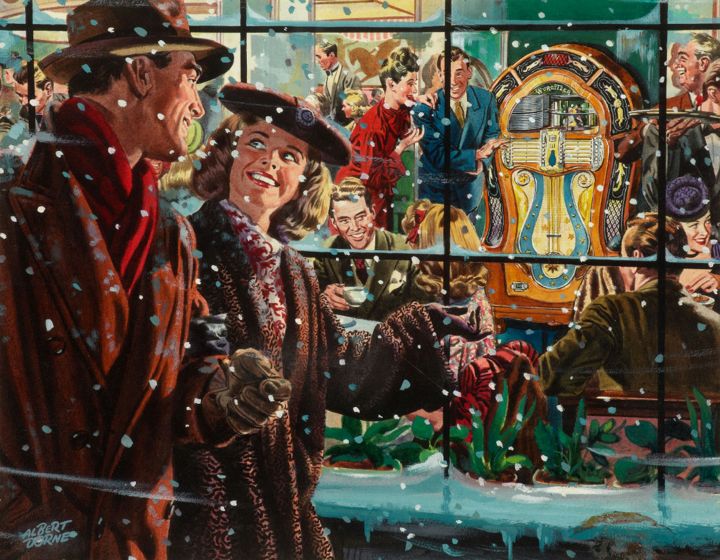
SOMETIMES
. . . I like to fall asleep right next to the Christmas tree, with the scent of its needles wafting me off to dreamland!
A CHARLES ZINGARO FOR TODAY
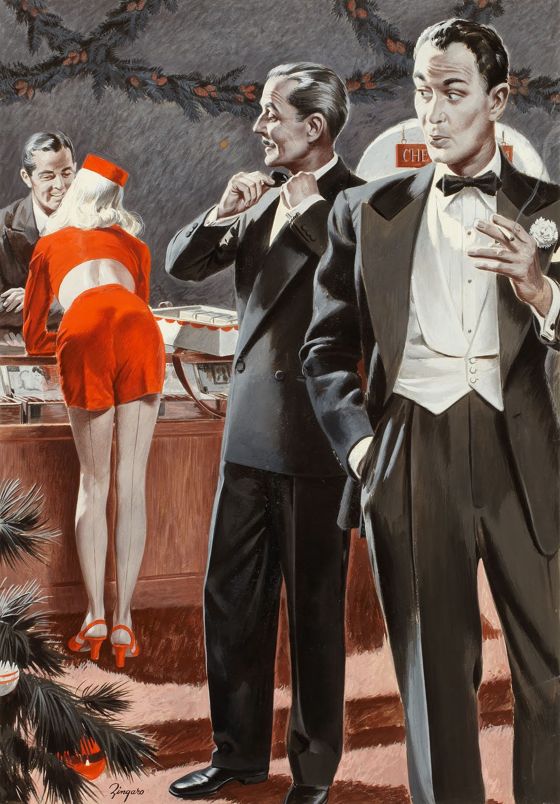
“Admiring the Bell Hop” — Argosy magazine.
GALLANTRY
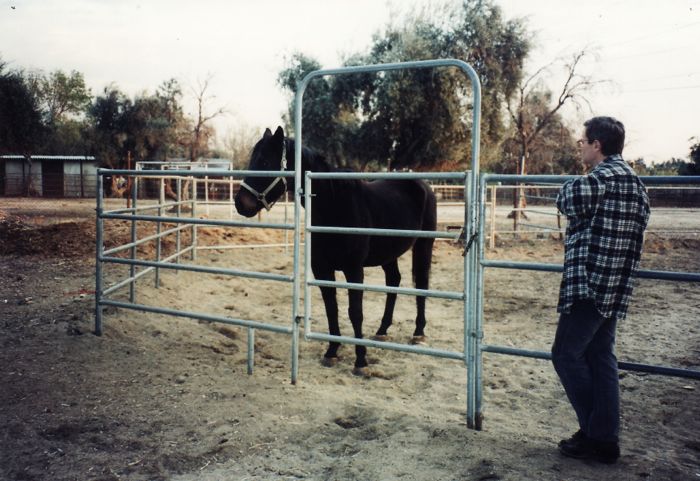
My beloved horse Rienzi, of blessed memory — as good a friend and as wise a mentor as I have ever had.
He was a thoroughbred, originally called Zorro, who had no success at the track and ended up with the Los Angeles Police Department, where he was abused. My friend Kevin Jarre bought him to ride while directing the movie Tombstone, but decided he needed a more spirited animal and then gave Rienzi to me when he took on the project of teaching me how ride. I would say that Rienzi had plenty of spirit, but didn't care to show it except on special occasions.
After his experiences with the LAPD he was forever surprised by kindness from any human being and returned the kindness many time over. He was a gallant creature who loved to run very, very fast, but infinitely patient with this amateur horsebacker who couldn't always handle the speed.
I think about him all the time.
NOTHING SAYS CHRISTMAS

. . . like a naked lady wearing a Santa hat.
HARRY AND LLOYD
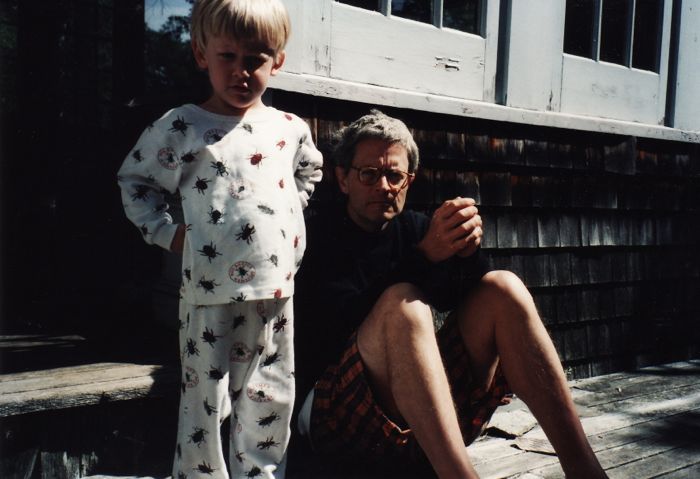
. . . make a fateful decision — no more Mr. Nice Guy!
OCCUPY

We heard a lot about hope from Barack Obama three years ago, but hope is where you find it, and you never find hope without courage.
THE MYSTERIES OF VINYL
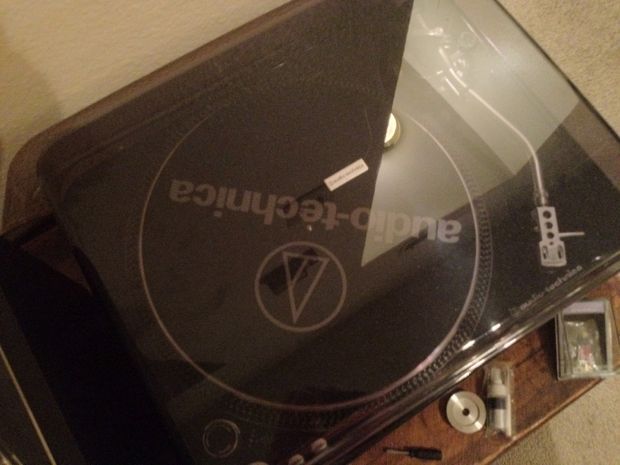
I recently got a new turntable — I'd been without a functioning one for
about 25 years, long enough, I reckon, to give me some perspective on
the experience of spinning vinyl.
I've heard people say that you can't really appreciate the superiority
of vinyl sound over CD sound except on audiophile equipment, but it's not
true. I have a decidedly non-audiophile music system and if I listen to a CD
after playing a couple of records I notice a difference immediately.
The CD sounds thinner, especially on the high end of the sonic range.
The ability to transmit the high end of a recording in warm, round tones
is what vinyl does best. And all across the sonic range it imparts a
presence to the music that a CD just can't.
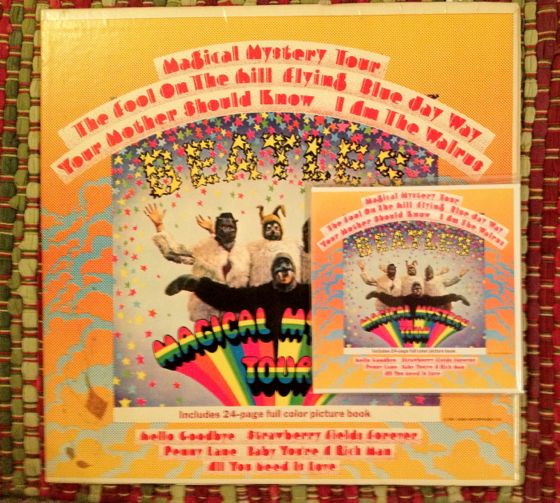
CD mastering has improved dramatically in recent years. You can hear
the improvement best by comparing the first CD versions of the Beatles
albums with the new remasters. With the remastered CDs there's a marked
difference in the roundness and warmth of the tone. They almost sound
like vinyl — but not quite . . . and again it's in the high end of the
range that you notice the difference most clearly. When John and Paul
hit their high notes, their voices take on a slightly freeze-dried
quality.
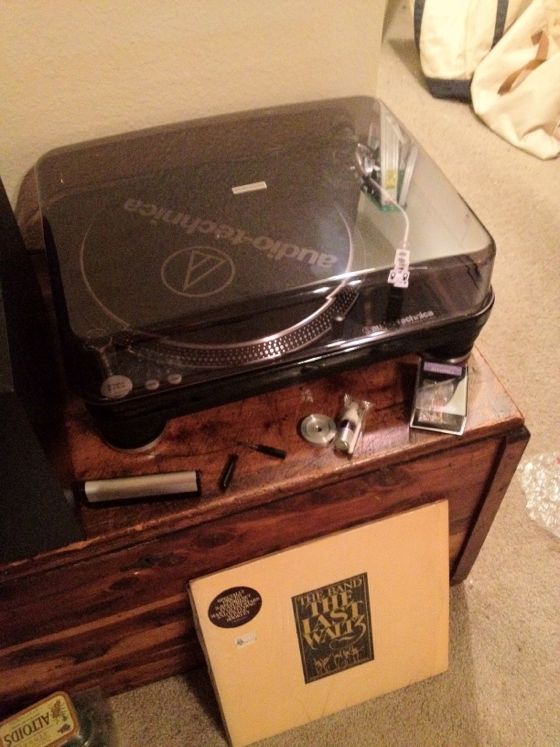
The other aspect of spinning vinyl has to do, of course, with the ritual
of the thing. Pulling a record out of its sleeve, cleaning it, being
careful to set the needle down on it without harming either the needle
or the disc, getting up to flip the record over when one side is done —
these things put you in a certain specific state of mind. It conditions you to think of the disc as a precious object, and the music you're going to listen as special — an event.
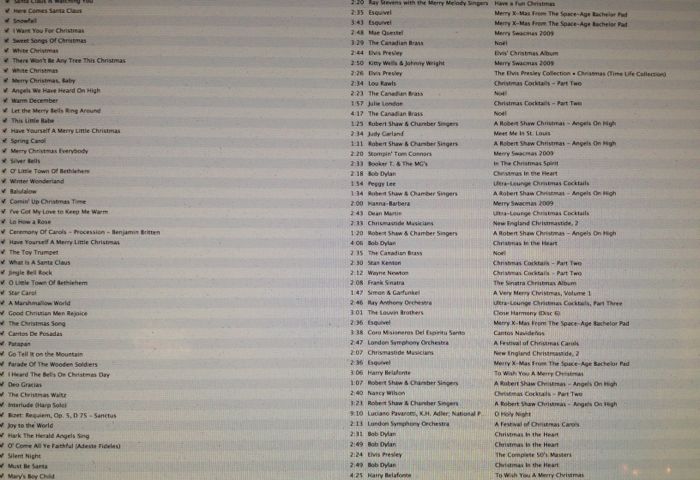
I adore the convenience of having tons of music on my computer and
portable devices. It allows me to listen to more music, and more varied
music, than I otherwise would. (Twenty-four hours worth of Christmas music is still not quite enough for me.) But spinning vinyl encourages me to
listen to music more selectively and carefully than I otherwise would.
I'd never go back to black exclusively, but I also don't ever want to be without it again.
